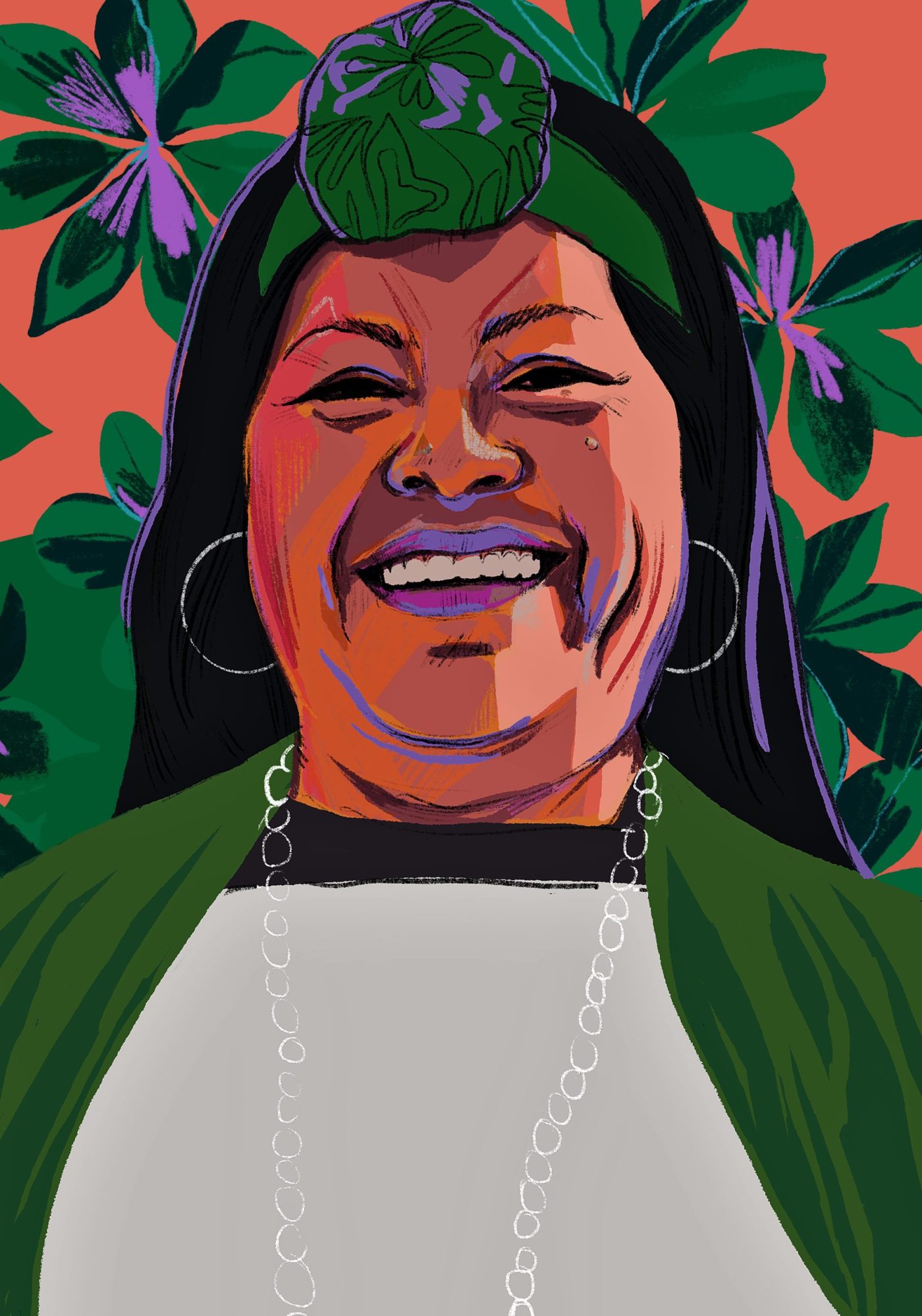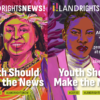From a community at the heart of the climate crisis, Guaraní leader Mariela Ibánez believes Indigenous women hold the key to solving the climate crisis.“The world must learn about our ways of life, and the role that women play in caring for the environment,” she declares. “We women are fundamental. We fight for the territory.”
Mariela is currently serving her second term as a leader in gender justice for the Assembly of the Guaraní People of Yacuíba in Bolivia. Her activism builds upon a long family and community history of defending life and land in the department of Yacuíba. Women, in particular, have long been stewards for the lands they depend on to produce food, gather firewood, collect water, and share cultural knowledge. Because of these responsibilities, Mariela says, Guaraní women “respect the territory as a principle of struggle and of life.” When they use natural resources, she explains, “we always ask permission, because it is out of necessity, to feed the family.” Climate change has doubled the Guaraní woman’s burden. Due to water pollution and the degradation of land, they must now walk for many kilometers to secure basic resources. Many women have become ill as a result of this intensive labour.
Despite the challenges of life in Yacuíba, Mariela and her community remain steadfast in their fight for climate justice. Mariela herself attributes her own resilience to her grandmother, remembering that her grandmother “always said ‘we resist because we believe that there will be liberation’”’
Yet there is a limit to resilience at the edge of survival. Mariela admits that her community is “running out of forest [and] running out of territory,” emphasizing the urgency of action at COP28 to address the climate crisis. Indigenous peoples, she says, must lead the systemic change which is desperately needed.
“As Indigenous peoples. . . we are very much related, connected to our territory. Because if there is no territory, there is no life for Indigenous peoples,” Mariela reflects.
To secure a positive outcome at COP28, Mariela demands accountability for governments to fulfill their obligations under the Paris Agreement. “What things has our government done? What should it have done? What if they have not [fulfilled their obligations]?”, she asks.
Secondly, Mariella seeks agricultural reforms. “Farmers and large producers are doing damage to the land by growing monocultures, by using fertilizers and chemicals that are destroying the land. They must be held accountable,” Mariella notes. Responsibility for such producers, she believes, could include financial reparations, support for reforestation, and the utilization of native plants rather than invasive species. The ancestral knowledge of the Guaraní and other Indigenous peoples could help support these changes. “Our grandparents knew how to prepare organic fertilizers and also organic insecticides,” Mariella says. “We do it from our communities, though we [farm] on small plots, but this could also be done on a large scale.”
Despite the challenges, Mariella believes that prompt action and the inclusion of Indigenous peoples in climate solutions can create a better future.



